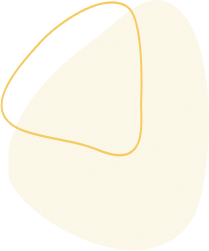Request An Estimate
When we were young and didn’t know better, many of us washed clothes, towels, and sheets in the same load. It was fast and easy, and most of us never asked, “Can you wash towels and sheets together?” The answer is obviously yes—however, a better question is, should you wash sheets and towels together? Washing towels with sheets saves time and water, but it also comes with a cost.
Washing Sheets With Towels Isn’t the Best Idea
Sheets and towels are manufactured differently and are made with natural, synthetic, and hybrid materials. They serve different roles; each gets dirty with unique soiling, germs, and other contaminants. While saving water and reducing the number of loads sounds good, wondering if you can wash sheets and towels together is a good first step in preserving your fabrics. Here is why you shouldn’t wash towels with sheets.
Fabric Damage
Because towels are typically made with heavier and denser material, they can be abrasive to softer fabrics. The heavier towels can also become tangled with the sheets, pulling and stretching the fibers out of shape. The friction during the wash cycle can also lead to pilling. Eventually, the towels will win, leaving you with clean but thin sheets.
Cross Contamination
Towels live a different life than sheets. Bath and dish towels are often our first defense against spills, pet accidents, vomit, and other dirty jobs. While sheets see their share of germs and dirt, the contamination is much milder. Towels can harbor bacteria and viruses picked up during cleaning and are magnets for mold and mildew when wet. The last thing you want is to share your bed with that array of germs. Wash towels and sheets separately in hot water for better health.
Insufficient Cleaning
If you’re washing towels and sheets together to save time and energy, you may be tempted to pack in as much as possible. Don’t. Overloading increases the chances of sheets and towels getting tangled. That twisted mess damages fabrics and can trap dirt for a less-than-spectacular clean. Towels can also collect lint during the wash and transfer it to the sheets. Wash sheets separately to get them as clean as possible and lint-free.
Longer Laundry Day
The time you save washing towels with sheets may be outweighed by the time you lose afterward. Sheets take much less time to dry than towels, and folding both is about as different as you can get! Plus, you likely wash towels daily and wash your sheets weekly. Unless you enjoy hanging out in the laundry room longer than you have to, don’t wash sheets with towels.
If you insist on washing towels and sheets together for environmental or financial reasons, it’s essential to do it right. To pull it off and minimize the downsides, washing sheets with towels requires a little more prep than your average wash load.
How To Wash Sheets and Towels
Washing sheets with towels safely requires a few unique laundry tips. Following the process below, you can save water, reduce energy costs, and even produce clean laundry! Use a heavy-duty detergent designed for cold water and these helpful hints.
Read the Label
Most manufacturers of clothing, towels, sheets, and other fabric items include a care label attached to the item. These handy tags identify unique cleaning needs, water temperatures, drying methods, and ironing. Whether you’re washing clothes or linens, check the label first to keep fabrics fresher and longer lasting.
Sort Fabrics, Colors, and Weights
Be careful mixing natural and synthetic fabrics, especially delicates, in a single wash load. Sort towels and sheets with natural fibers together, and vice-versa. Then, sort the sheets and towels into darks and lights. Finally, sort out the heavier towels and wash them separately.
Pretreat Stains
Sheets and towels see their share of stains, from blood and food to makeup stains. To get the most out of your mix-and-match wash load, pretreat stains before loading the washer. Depending on the stain and stain remover, pretreating 10 to 20 minutes before washing should eliminate most stains.
Cold Water
Washing with hot water can be a good idea for some laundry. Hot water kills germs, and the water molecules move faster than cold water molecules, so they clean more quickly. But. Hot water can also permanently set stains, discolor fabric, and damage fibers. Cold water is the safest solution when you’re mixing fabrics with items like towels and sheets. Plus, you’ll save on energy costs.
Disinfect and Soften Fibers Naturally
Even though you don’t have the sanitizing power of hot water, you can still disinfect your laundry with natural ingredients. A cup of distilled white vinegar in a cold water wash will disinfect and soften fabrics naturally. Use vinegar in the rinse cycle if your washer has a fabric softener dispenser, as it helps dissolve the odor-causing detergent buildup in fabrics.
Deodorize and Whiten Safely
Baking soda is a natural brightener and deodorizer that is eco-friendly and safe for all fabrics. Add a half cup of baking soda to the rinse cycle for fresher-smelling, brighter towels and sheets. Baking soda is also ideal for eliminating mildew odors in towels. Pour in a cup at the start of the wash and use the double rinse cycle.
If you wash sheets and towels together, separate them before putting them in the dryer. Dry the sheets first, then your towels. Consider line drying them when possible to reduce wear and tear on your sheets. There’s nothing like freshly laundered sheets that have dried in the sun! While your sheets are drying, why not check out our handy guide for washing pillows?
The Maids®: Lightening The Load Since 1979
Since 1979, The Maids® has helped customers across North America enjoy a cleaner, healthier home with less work. Now that you have the inside scoop on towels and sheets, what’s next? Whether you rely on our cleaning guides or professional cleaning services, The Maids wants to make life easier. Find more time for what you love and enjoy a cleaner home when you get your free custom cleaning quote today.
Request An Estimate










